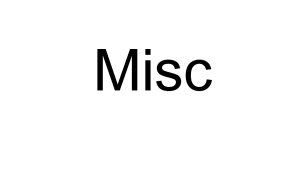 20 Terms
20 TermsHome > Terms > English (EN) > underclass
underclass
A term introduced by Time magazine in 1977 which describes what some saw as a new class of poor people, not cursed simply with a lack of money, but with a whole host of social pathologies, from single parenthood, to drug addiction, to high rates of participation in crime, and low willingness to pursue legitimate work. The members of the “underclass” had allegedly fallen out of society’s traditional structures of work and family. They would, it was argued and feared, reproduce a class of dependent poor. The term is best written in quotation marks as it reveals as much about a cultural moment in the history of attitudes towards the poor and a community’s obligation to them as it does an actual group of people.
New, troublesome phenomena facing the United States and its cities gave rise to a series of books and endless articles about a “new” poverty. It is no accident, for example, that the term came out of an era of declining economic fortunes for the United States, as well as a wrenching transformation of cities and the larger economy which left many cities destitute in ways they had not seen before. With a rapidly declining industrial base, consequent growth of suburban area, a retrenchment of “Great Society” welfare and urban development goals, many urban areas had been left devoid of an industrial base.
Most gravely affected were “newer” immigrants, African Americans and Hispanics, in major urban areas. Poverty among these groups in urban centers did worsen as economic opportunities fled once-flourishing neighborhoods, ever more so as industry and new service-sector jobs moved out to suburbs and exurbs. A new American apartheid, as Douglas S. Massey and Nancy A. Denton called it, was taking over, not through southern segregation law, but by northern economic change and political decisions. The impact of economic desolation—“when work disappears” in William J. Wilson’s phrase—was a breakdown in a whole host of social structures and mores that maintain a community.
So, there were indeed new, troubling aspects of poverty in the 1970s and 1980s. But behind an apparently descriptive term of new problems, lay a century or more of attitudes and policies towards the poor and a more recent intense battle over poverty economic change and government’s role in social welfare. With the apparent failure of the “Great Society,” many conservative commentators looked for answers not in lack of opportunities or income but in a “culture of poverty.” This was in many ways old wine in new bottles—the notion of the “undeserving” and irredeemable poor from the nineteenth century recast for the late twentieth century. The term has been largely rejected by liberal scholars of American cities and social policy as at the very least useless—it offers no new insight into the new problems of poverty—and, at the worst, disastrous for the effort— once a real goal, now a starry-eyed dream—of eradicating poverty. For, by focusing on the behaviors of the poor and the “dysfunctional” life of poor, usually minority, communities, it turns attention away from structural changes in the economy which have created new, and in some ways, unprecedented problems of inequality.
- Part of Speech: noun
- Synonym(s):
- Blossary:
- Industry/Domain: Culture
- Category: American culture
- Company: Routledge
- Product:
- Acronym-Abbreviation:
Other Languages:
Member comments
Terms in the News
Billy Morgan
Sports; Snowboarding
The British snowboarder Billy Morgan has landed the sport’s first ever 1800 quadruple cork. The rider, who represented Great Britain in the 2014 Winter Olympics in Sochi, was in Livigno, Italy, when he achieved the man-oeuvre. It involves flipping four times, while body also spins with five complete rotations on a sideways or downward-facing axis. The trick ...
Marzieh Afkham
Broadcasting & receiving; News
Marzieh Afkham, who is the country’s first foreign ministry spokeswoman, will head a mission in east Asia, the state news agency reported. It is not clear to which country she will be posted as her appointment has yet to be announced officially. Afkham will only be the second female ambassador Iran has had. Under the last shah’s rule, Mehrangiz Dolatshahi, a ...
Weekly Packet
Language; Online services; Slang; Internet
Weekly Packet or "Paquete Semanal" as it is known in Cuba is a term used by Cubans to describe the information that is gathered from the internet outside of Cuba and saved onto hard drives to be transported into Cuba itself. Weekly Packets are then sold to Cuban's without internet access, allowing them to obtain information just days - and sometimes hours - after it ...
Asian Infrastructure Investment Bank (AIIB)
Banking; Investment banking
The Asian Infrastructure Investment Bank (AIIB) is an international financial institution established to address the need in Asia for infrastructure development. According to the Asian Development Bank, Asia needs $800 billion each year for roads, ports, power plants or other infrastructure projects before 2020. Originally proposed by China in 2013, a signing ...
Spartan
Online services; Internet
Spartan is the codename given to the new Microsoft Windows 10 browser that will replace Microsoft Windows Internet Explorer. The new browser will be built from the ground up and disregard any code from the IE platform. It has a new rendering engine that is built to be compatible with how the web is written today. The name Spartan is named after the ...
Featured Terms
self-portraits
The dozens of self-portraits by Vincent van Gogh were an important part of his oeuvre as a painter. Vincent van Gogh created many self-portraits ...
Contributor
Featured blossaries
paul01234
0
Terms
51
Blossaries
1
Followers
Egyptian Gods and Goddesses
 20 Terms
20 Terms
Browers Terms By Category
- General accounting(956)
- Auditing(714)
- Tax(314)
- Payroll(302)
- Property(1)
Accounting(2287) Terms
- Cosmetics(80)
Cosmetics & skin care(80) Terms
- SSL certificates(48)
- Wireless telecommunications(3)
Wireless technologies(51) Terms
- Inorganic pigments(45)
- Inorganic salts(2)
- Phosphates(1)
- Oxides(1)
- Inorganic acids(1)
Inorganic chemicals(50) Terms
- Biochemistry(4818)
- Molecular biology(4701)
- Microbiology(1476)
- Ecology(1425)
- Toxicology(1415)
- Cell biology(1236)




